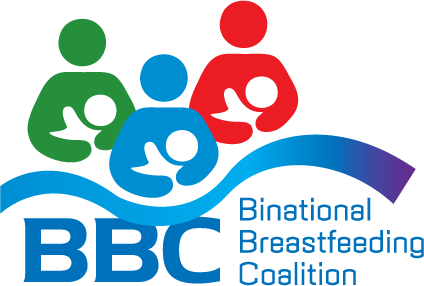Advocacy
The decision to breastfeed is a personal one, and a mother should not be made to feel guilty if she cannot or chooses not to breastfeed. The success rate among mothers who want to breastfeed can be greatly improved through active support from their families, friends, communities, clinicians, health care leaders, employers and policy makers. Given the importance of breastfeeding for the health and well-being of mothers and children, it is critical that we take action across the country to support breastfeeding. What can you do to help?
Public policy strongly influences breastfeeding success. Too many women struggle with roadblocks to breastfeeding success. These obstacles can be addressed with legislation, policy, regulations, by writing to insurance companies, and by working directly with employers and hospitals. Let your voice be heard – we need you to advocate for breastfeeding families! It is very important that our elected officials, state health departments, hospital executives, employers, and insurers hear the public ask for better breastfeeding support.
Read the full Surgeon General's Call to Action to Support Breastfeeding – 2011 or see an excerpt below.
Call to Action
Mothers and Families:
Give mothers the support they need to breastfeed their babies.
Develop programs to educate fathers and grandmothers about breastfeeding.
Communities:
Strengthen programs that provide mother-to-mother support and peer counseling.
Use community-based organizations to promote and support breastfeeding.
Create a national campaign to promote breastfeeding.
Ensure that the marketing of infant formula is conducted in a way that minimizes its negative impacts on exclusive breastfeeding.
Health Care:
Ensure that maternity care practices throughout the United States are fully supportive of breastfeeding.
Develop systems to guarantee continuity of skilled support for lactation between hospitals and health care settings in the community.
Provide education and training in breastfeeding for all health professionals who care for women and children.
Include basic support for breastfeeding as a standard of care for midwives, obstetricians, family physicians, nurse practitioners, and pediatricians.
Ensure access to services provided by International Board Certified Lactation Consultants.
Identify and address obstacles to greater availability of safe banked donor milk for fragile infants.
Employment:
Work toward establishing paid maternity leave for all employed mothers.
Ensure that employers establish and maintain comprehensive, high-quality lactation support programs for their employees.
Expand the use of programs in the workplace that allow lactating mothers to have direct access to their babies.
Ensure that all child care providers accommodate the needs of breastfeeding mothers and infants.
Research and Surveillance:
Increase funding of high-quality research on breastfeeding.
Strengthen existing capacity and develop future capacity for conducting research on breastfeeding.
Develop a national monitoring system to improve the tracking of breastfeeding rates as well as the policies and environmental factors that affect breastfeeding.
Public Health Infrastructure:
Improve national leadership on the promotion and support of breastfeeding.
U.S. Department of Health and Human Services. The Surgeon General’s Call to Action to Support Breastfeeding. Washington, DC: U.S. Department of Health and Human Services, Office of the Surgeon General; 2011.

